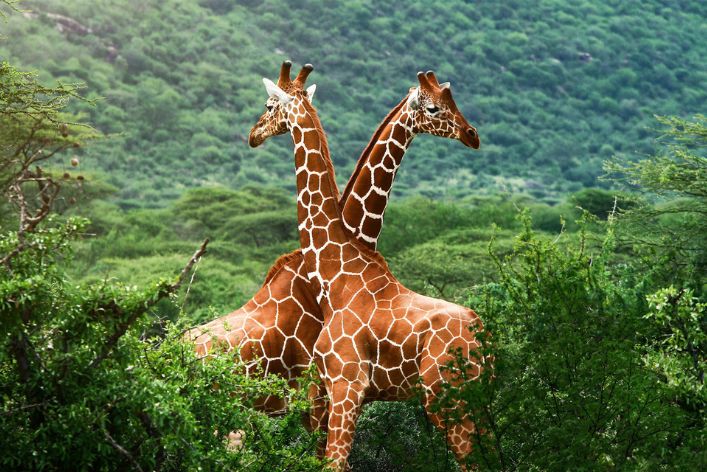Last Updated on November 19, 2022
“Socialismo O Muerte!” – (Socialism or Death!).
Fidel Castro.
History lovers gather here. Fidel Castro isn’t an alien name to you. You don’t have to know a whole lot about him, but it’s a name that certainly rings a bell. Why don’t we talk about him today and his ‘contributions’ to Africa? He was also friends with many African leaders. As such, most of his actions have either been underplayed or overplayed.
Was Fidel Castro a good man? Did he contribute positively to Africa and her people, as the history books say? Or was it the complete opposite? A colonizer? Terrorist? Torturer and Cheat? Well, you’ll find all the answers in this story. Grab a cup of juice, and seat on your favourite chair as we take a trip down memory lane.
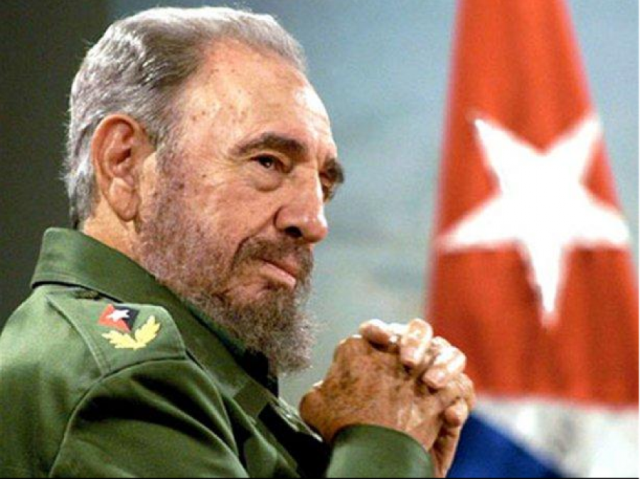
Who Was Fidel Castro?
Born out of wedlock on August 13, 1926, Fidel Alejandro Castro Ruz was raised on his father’s sugar cane plantation. Fidel Castro is one of seven children by his father, Angel Castro, and his second wife, Lina Ruz Gonzalez, who also used to be Angel’s mistress. Angel Castro was a veteran of the Spanish-American War who migrated from the Spanish City of Galicia to Cuba and became a successful sugar cane farmer.
Fidel Castro grew up to become a Cuban politician and revolutionary, leading his country from 1959 to 2008 as Prime Minister and President. The young Castro worked on his father’s sugar plantation. Due to his father’s fairly prosperous business, he was privileged to receive a quality education at Colegio La Salle and then Colegio Dolores in Santiago. He also attended Colegio Belen in Havana.
Although he regularly misbehaved in La Salle as a kid, he became Colegio Belen’s most outstanding athlete. Fidel Castro’s journey to becoming one of the most popular politicians in history began when he joined the University of Havana to pursue law. He became actively involved in politics. Like Thomas Sankara, he adopted leftist ideas during his time at the University of Havana.
In 1947, Fidel Castro contributed to a failed attempt to overthrow the Trujillo dictatorship in the Dominican Republic. He also rebelled against other right-wing governments in Colombia.
Castro fled for his life but returned in 1950 to complete his degree.
Fidel Castro Spent Time in Prison
Honestly, how many past heroes who rebelled escaped prison? We can’t think of many right now. Three years after completing his degree, Fidel Castro launched an attack to overthrow Cuban President Fulgencio Batista. Organizing 165 men and women, Fidel Castro, alongside his brother Raul attacked the Moncada army barracks. But the attack failed as half of the attackers were killed while Castro and his brother were taken prisoners.
Although they were sentenced to 15 years in jail, the brothers were released after a year due to an Amnesty programme. After he was released, Castro went to Mexico and formed a revolutionary group called the 26th of July Movement alongside his brother Raul and Ernesto “Che” Guevara.
The Cuban Robinhood
As a new Lawyer, Fidel Castro chose to use his degree honourably. He joined a small law firm committed to defending the poor and others with political struggles. He was politically affiliated with the Orthodox party, which strongly opposed Fulgencio Batista’s government and his party, the Authentic Party.
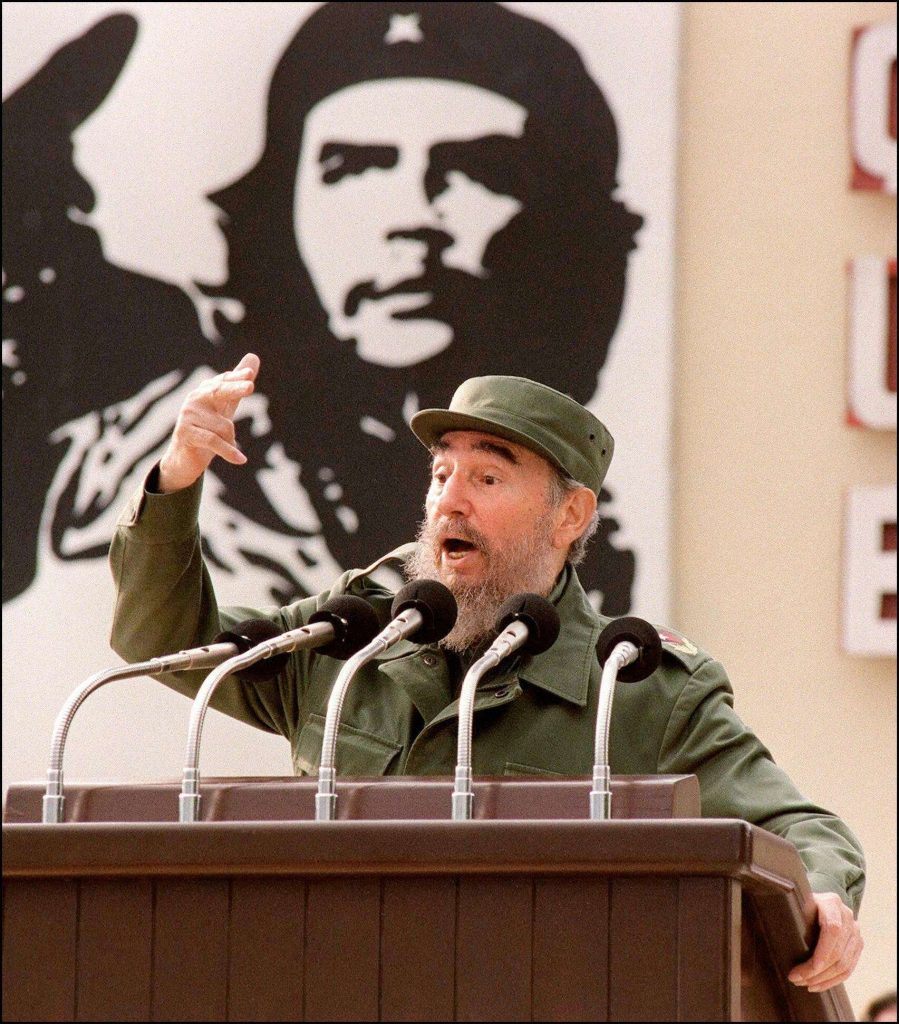
Fidel Castro Became Prime Minister
Although his first attempt to overthrow Batista failed, his revolutionary group, the 26th of July Movement, would eventually become successful. But before that, another attempt was unsuccessful, with more causalities than the first. Castro was at the frontier of the Cuban Revolution and led the movement in a guerrilla war that ultimately overthrew Batista in 1959. Hence, Castro became Cuba’s prime minister.
The United States of America Didn’t Like Castro
The USA weren’t exactly big fans of Fidel Castro and even tried to remove him from power through various means. For example, through assassination attempts, economic embargoes, and counter-revolution. As a response, Fidel Castro supported the Soviet Union and allowed them to place nuclear weapons in Cuba. As we all know, Cuba is just right outside the United States. This caused unrest that led to the Cuban Missile Crisis in 1962, which became a critical incident during the Cold War.
Fidel Castro’s Relationship With Africa
Fidel Castro was committed to decolonisation and revolutionary ideas. And part of this was sending troops to help African countries fight against colonial powers.
Cuba emerged as a supporter of liberation movements when Africa was a battlefield for Cold War enemies. By sending soldiers, physicians, and teachers at a time when post-colonial Africa may have been most vulnerable, Cuba’s intervention in Africa extended beyond the ideological conflict between the right and left.
Although he was a Latin American Revolutionary, Castro was dedicated to ending imperialism, capitalism, apartheid, injustice, and Zionism anywhere in the world.
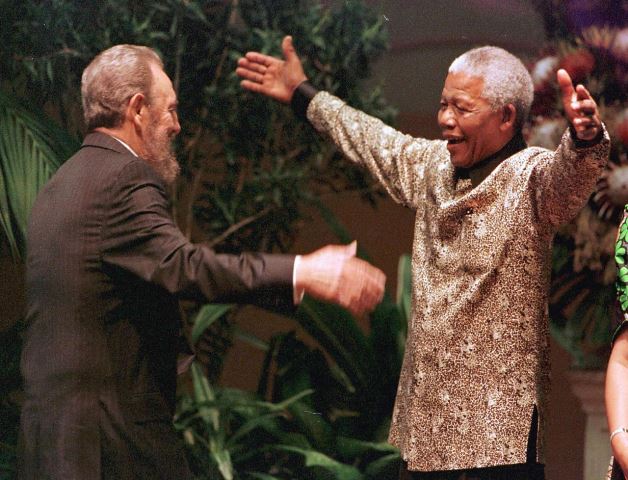
Castro Helped South Africa During Apartheid
You must have seen pictures of Nelson Mandela with Fidel Castro. Well, there are good reasons why.
Once during an interview when Mandela was challenged by the US media for praising Castro as a leader of human rights and befriending Muammar Gaddafi, the South African hero replied:
“One of the mistakes some political analysts make is to think their enemies should be our enemies.”
“Yasser Arafat, Colonel Gaddaffi, Fidel Castro support our struggle to the hilt.”
Nelson Mandela
Why did Mandela defend Fidel Castro so much?
Cuba played a significant role in supporting the African National Congress (ANC) and Nelson Mandela in their agitation against Apartheid in South Africa.
In a 1998 speech delivered to the South African parliament when he first visited the country, Castro said that by the end of the cold war, at least 381,432 Cuban soldiers and military men had been on duty or “fought hand-in-hand with African soldiers and officers in this continent for national independence or against foreign aggression.”
But Castro didn’t stop in South Africa.
Fidel Castro’s Contribution to Ghana, Algeria, and Congo-Brazzaville
In 1961, Fidel Castro established a Guerilla training base in Ghans, which continued operation until Kwame Nkrumah was overthrown as President by the military in 1966.
During Algeria’s border conflict with Morocco, Cuban troops were deployed to Algeria. Between 1965 and 1966, Che Guevara led troops into Zaire and Congo-Brazzaville, where Cuba set up an advisory military mission. The military intervention foiled a Congolese army revolt in 1966. Cuba’s military missions also extended to Sierra Leone and Somalia.
Cuba also collaborated with Algeria to support Polisario, an independence movement against Moroccan control of the Western Sahara.
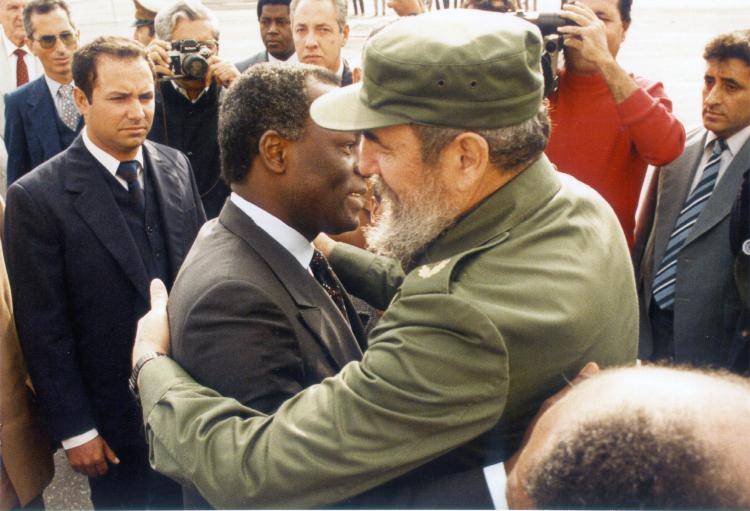
Fidel Castro’s Greatest Contribution to Africa Was in Angola
Although Castro supported several independence agitations in Africa, Cuba’s greatest solidarity and sacrifice was in Angola.
“Fidel is a friend, a comrade. He is an unforgettable figure for us. His memory will always be remembered in Angola,” – Manuel Vicente, Former Vice President of Angola, during a condolence book dedicated to Fidel Castro.
The Union National Pro-Independence Total of Angola (UNITA), the Movement Popular de Liberation of Angola, and the Frente National de Libertacao de Angola (FNLA) were the three competing sub-movements that made up the national liberation struggle in Angola (MPLA).
Founded by Agosthino Neto, who later became Angola’s first president, the MPLA had massive grassroots support in Angola. Neto also enjoyed great support from Castro, who supported the MPLA. After immense pressure from the South Africans and other US governments and agencies, Neto requested support from Castro. It is important to note that Operation Savannah, South Africa’s military incursion into Angola, was due to the South African Border War that arose due to the Angolan War of Independence.
Fidel Castro believed that if he did not support MPLA, his vision of having Angola as a powerful Marxist state in Africa and a platform to advance Marxism in Africa would quickly fade. Castro responded by deploying 35,000 troops to the Cuito Cuanavale stage in support of the MPLA.
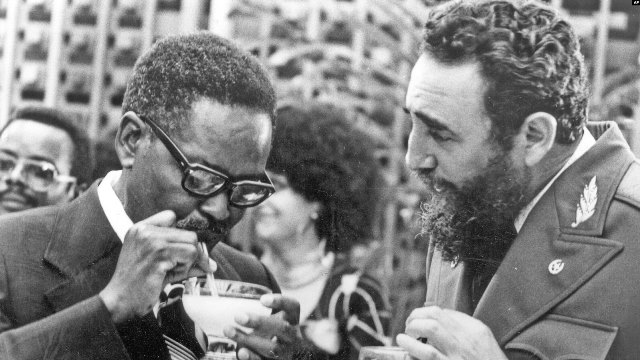
Operation Carlota, launched in November 1975 by Angolan and Cuban forces, drove South Africans out of Angola by halting their advance on the country’s capital, Luanda. The combined FNLA, UNITA, and South African forces were routed by the MPLA with the aid of Soviet and Cuban assistance.
Angola finally attained independence on December 12, 1976, as Agosthino Neto became president. But it came at a huge cost to Cuba as about 3,400 Cubans lost their lives between 1986-1989.
Fidel Castro Is a Hero in Africa
Castro’s support for Africa’s independence and liberation wasn’t limited to Angola. He supported Libya’s Muammar Gaddafi, Congo’s Patrice Lumumba, South Africa’s Nelson Mandela, Zimbabwe’s Robert Mugabe, and Ghana’s Kwame Nkrumah.
Fidel Castro also advanced medical services that benefited African countries like Niger, Mali, the Gambia, and Burkina Faso. Today, Fidel Castro remains an African hero, and you will hear many young Africans bearing Fidel or Castro.
At the age of 90, Fidel Castro died on November 25, 2016, of natural causes. He was committed to the liberation and development of many African countries. Fidel Castro was a friend of Africa and a hero.
Before you go…
Thank you for reading this blog. We hope you loved it. But before you go, we would like you to know about our team at Nicholas Idoko Technologies. We help small, medium, and large-scale businesses lead competitive markets through modern applications. We can create custom software applications that suit your visions. Some of our past projects cut across blockchain, eCommerce, online voting, games, fintech, and Edtech.
We will provide the best software products with the fastest delivery time. Contact us today for a consultation and any of our services.










